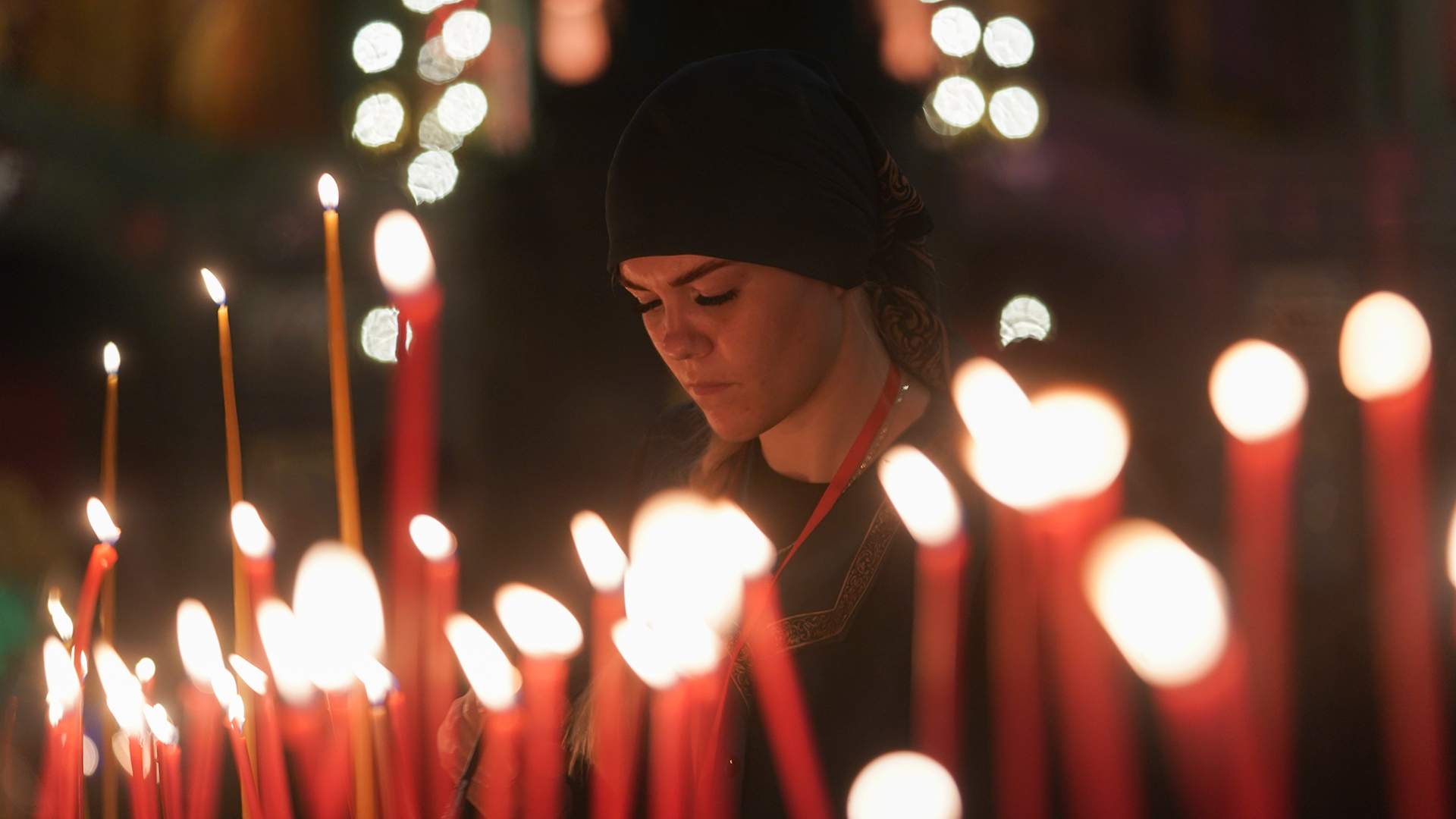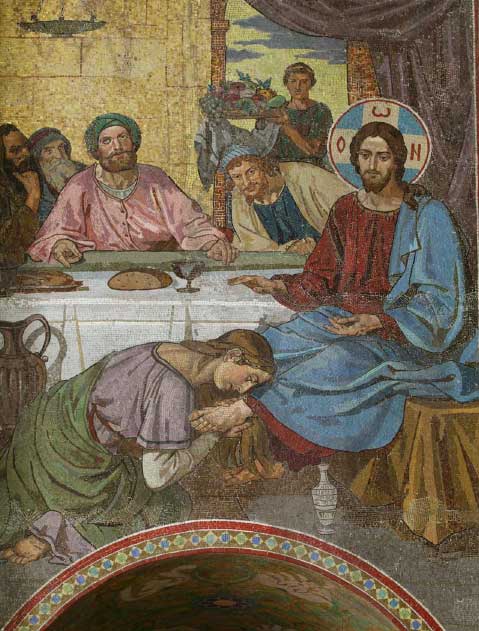Great Wednesday is a special day of Holy Week: worship, omens, what not to do

Great Wednesday is the third day of Holy Week, the last week before Easter. In 2025, the holiday falls on April 16. Orthodox believers recall two important biblical events that took place in the last days of Jesus Christ's earthly life — the betrayal of Judas and the chrismation. For more information about what happened on Great Wednesday according to the Gospel and what services are traditionally held in churches, see the Izvestia article.
Great Wednesday of Holy Week in 2025
Holy Week is the last week of Great Lent, which precedes the main Christian holiday. Easter in 2025 falls on Sunday, April 20th. Consequently, Great Wednesday of Holy Week falls on April 16, a weekday, in the morning believers will be able to attend services and devote themselves to prayers.
Every day in Holy Week is called great, or passionate. During this period, the Orthodox Church does not celebrate saints' days, does not mention the dead, and does not conduct weddings and baptisms. On the third day of Holy Week, the sacrament of confession is performed before the liturgy of Holy Thursday.
What happened on Holy Wednesday of Holy Week according to the Gospel
The events of Great Wednesday are described in the 26th chapter of the Gospel of Matthew. The narrative begins with the words of Jesus, who warned the apostles that He would be crucified in two days. At the same time, the highest ranks of the church and the people's elders gathered at the high priest Caiaphas. The council discussed Jesus, who on Holy Tuesday began to make statements that were disastrous for their power about the coming Last Judgment and the end of the former world. It is necessary to execute the son of God before the holiday in order to avoid a possible riot by an outraged crowd.

On Great Wednesday of Holy Week, two significant events took place, to which the church services of that day are dedicated. So, the first case is related to the anointing of Christ with myrrh (consecrated oil). While resting in the house of Simon the leper, a woman approached him and poured precious fragrant oil on his head. The apostles were outraged that she had spilled the product for no reason, because it was possible to sell it and give money to those in need. However, Jesus interrupted the conversation and said that she had warned him of his imminent sufferings. The sinner's act was remembered for many centuries. At the same time, the Gospel of Luke states that this woman anointed the feet of Christ with myrrh, and the Gospel of John specifies that this woman was Mary, the sister of Lazarus, whom Jesus had previously resurrected.
The biblical scholar Anna Shmanina-Velikanova notes that this episode is described in almost the same way in all four Gospels. Only the details of the narrative differ. The students' protest was due to the fact that the 300 denarii that the oil cost was a huge amount of money. At the same time, the evangelist John writes that Judas Iscariot was the initiator of the discontent, because he wanted the woman to put the money in the drawer, and he would steal it from there.
— Anointing in the Jewish culture was a sacred act. Kings and high priests were anointed, as well as the dead, although in a slightly different way. A special blend of incense and oils was designed to prevent rotting and get rid of the odor. Consequently, a woman's actions are read in two ways: on the one hand, she considers Christ to be the king, on the other, she expects his funeral," the expert adds.

According to the Gospel of Matthew, after the anointing, Judas Iscariot, one of the 12 apostles of Jesus Christ, went to the council of the elders who wanted to deal with the Savior. He asked them what he would get in return if he turned in his teacher. He was offered 30 pieces of silver (a large sum at that time, which could be used to buy a house in Jerusalem), after which he began to look for a suitable opportunity for betrayal. It is assumed that Judas's collusion with the high priests took place on the night of Tuesday to Wednesday.
After that, on Holy Thursday, during the Last Supper, Jesus had dinner with his followers for the last time and told them that one of them would betray him soon.
Great Wednesday 2025: What you can't do, what you can eat
On Great Wednesday, Orthodox believers observe strict fasting. According to the monastic rule, dry eating is allowed on this day, it is allowed to eat bread, water, raw vegetables and fruits, nuts, honey and dried fruits. For ordinary believers, the restrictions are milder, and the sick and infirm are exempt from fasting.
In addition to food restrictions, it is not recommended to visit the cemetery and commemorate the dead on Holy Wednesday. It is not necessary to invite guests and celebrate birthdays on this day. Remembering Judas, a believer should refrain from self-interest and even the slightest plans for betrayal. Needlework is also prohibited — housewives should not sew, embroider or knit.
Great Wednesday marks the beginning of preparations for Easter. Usually at this time, housewives collect everything for coloring eggs and sourdough cakes.
Sourdough is a liquid dough with yeast concentrate, which is prepared to make the main dough more fluffy.
Besides, Great Wednesday is a day of household chores. First of all, it is worth washing the windows so that the sun shines brighter on Easter.
Great Wednesday, April 16, 2025: prayers, schedule of services
Holy Wednesday during Holy Week takes on a special meaning for believers — it is the last day before the trial of Jesus Christ.
Cleric Nikolai Savchenko says that on this day the Liturgy of the presanctified gifts is served in churches, and in monasteries all four Gospels are read during the first three days of Holy Week — on Wednesday they finish reading the last one.
At the Divine Liturgy, the clergy recite the prayer of Ephraim the Syrian for the last time with three great bows, after which bows in churches cease until the feast of the Holy Trinity, which in 2025 falls on June 8. This prohibition means that Jesus repented for people's misdeeds. In addition, on the evening of Holy Wednesday, a common confession is performed in many churches. It is held in honor of the next day, Maundy Thursday, when it is customary to receive communion.
Переведено сервисом «Яндекс Переводчик»


